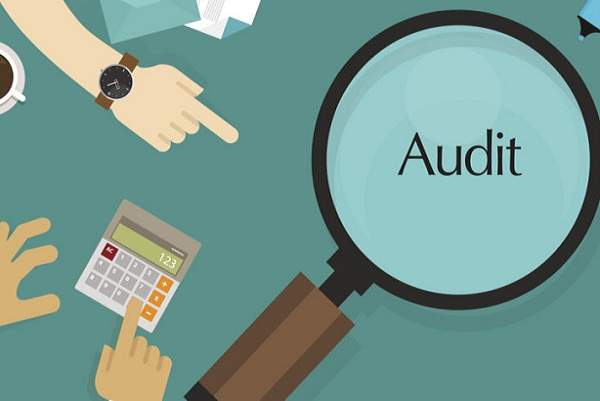Assurance Engagement Audit

Assurance Engagement Audit
Assurance engagement services encompass a broad range of professional services provided by accounting and auditing firms to evaluate and provide assurance on various aspects of an organization’s operations, financial information, and compliance with regulatory requirements. These engagements are conducted by qualified professionals, such as Chartered Accountants, and aim to enhance the credibility, reliability, and transparency of information provided to stakeholders.
1. Financial Statement Audits: Financial statement audits are the most well-known type of assurance engagement. They involve an independent examination of an organization’s financial statements to provide assurance on their fairness, accuracy, and compliance with accounting standards. Auditors assess internal controls, perform substantive testing, and issue an audit report expressing their opinion on the financial statements.
2. Review Engagements: Review engagements provide a lower level of assurance than audits but more than compilations. Accountants perform analytical procedures and inquiries to assess the plausibility of financial statements and issue a review report expressing limited assurance on their accuracy and compliance with accounting standards.
3. Compilation Engagements: Compilation engagements involve the preparation of financial statements based on information provided by management without providing any assurance on their accuracy or compliance with accounting standards. Accountants organize financial data into a structured format but do not perform verification or testing procedures


4. Agreed-Upon Procedures (AUP) Engagements: AUP engagements involve performing specific procedures agreed upon by the client and other stakeholders. The scope and nature of the procedures are defined in the engagement agreement, and the accountant issues a report of findings based on the procedures performed.
5. Compliance Audits: Compliance audits assess an organization’s adherence to laws, regulations, contractual agreements, or internal policies and procedures. Auditors evaluate whether the organization’s activities comply with applicable requirements and issue a report on their findings and recommendations.
6. Internal Control Assessments: Internal control assessments involve evaluating the design and effectiveness of an organization’s internal control systems. Auditors assess the reliability of financial reporting, safeguarding of assets, and compliance with laws and regulations, and provide recommendations for improvement.
7. Sustainability Reporting Assurance: Sustainability reporting assurance involves assessing the accuracy, completeness, and reliability of an organization’s sustainability disclosures, including environmental, social, and governance (ESG) factors. Auditors provide assurance on the organization’s sustainability performance and reporting practices.
8. Information Technology (IT) Audits: IT audits evaluate an organization’s IT infrastructure, systems, and controls to ensure the integrity, availability, and confidentiality of information assets. Auditors assess IT governance, cybersecurity, data management, and compliance with IT regulations and standards.


Why Us?
Overall, assurance engagement services play a critical role in providing stakeholders with confidence in the reliability, integrity, and transparency of an organization’s operations, financial information, and compliance efforts. They help organizations mitigate risks, improve accountability, and make informed decisions based on trustworthy information.
Assurance engagement services provided by Singh Suri & Company, Chartered Accountants, involve the independent examination of information or processes to provide assurance to stakeholders about their reliability, accuracy, and compliance with relevant criteria. These engagements go beyond traditional financial statement audits and encompass a wide range of activities aimed at enhancing trust and confidence in various aspects of an organization’s operations.
1. Objective and Criteria Definition: We at the first step in an assurance engagement is defining the objectives and criteria against which the information or processes will be evaluated. Objectives may vary widely depending on the nature of the engagement but often include aspects such as compliance with laws and regulations, effectiveness of internal controls, or reliability of sustainability reporting. Criteria provide the standards against which the subject matter will be evaluated.
2. Evidence Gathering: We gather evidence through procedures such as inspection, observation, inquiry, and testing to assess the subject matter against the defined criteria. The nature and extent of evidence gathering depend on the scope and objectives of the engagement.
3. Evaluation and Analysis: The gathered evidence is evaluated and analyzed to determine whether the subject matter meets the defined criteria. This involves assessing the relevance, reliability, and sufficiency of the evidence to support the conclusions reached.


4. Reporting: We will communicate their findings and conclusions through a formal report issued to stakeholders. The report typically includes a description of the scope and objectives of the engagement, the criteria used for evaluation, a summary of findings, and the auditor’s opinion or conclusion on the subject matter.
5. Independence and Professional Skepticism: We assure the engagements maintain independence and exercise professional skepticism throughout the engagement process. This ensures objectivity and integrity in their assessment of the subject matter.
Overall, assurance engagements play a critical role in enhancing transparency, accountability, and trust in the information provided by organizations to their stakeholders. We will help stakeholders make informed decisions and mitigate risks associated with unreliable information or processes.


